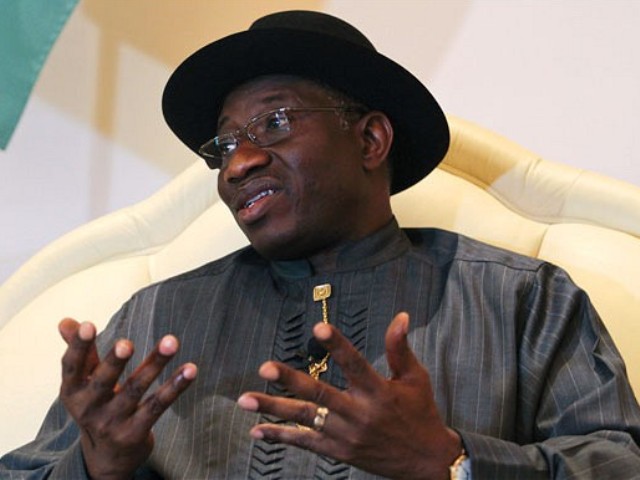A ceasefire reportedly agreed by the Nigerian government and the
extremist Boko Haram sect, stirred anxiety across the country Friday
amid hopes it would help restore peace to conflict-torn communities
overrun by the sect in bloody raids.
At a meeting with Cameroonian military officials in Abuja, the
Nigerian Defence Chief, Alex Badeh, an Air Chief Marshal, announced that
his field commanders had been directed to comply with the truce
immediately.
“I wish to inform this audience that a ceasefire agreement has been concluded,” Mr. Badeh said.
In a separate statement, the Coordinator, National Information Centre
and head of the National Orientation Agency, Mike Omeri, said the
government had been in contact with Boko Haram regarding the uprising in
the northeast and the kidnapping of the schoolgirls.
He said the group had indicated interest in peace and that the federal government merely followed suit.
“From the discussions, they indicated their desire for and willingness to discuss and resolve all associated issues.
“They also assured that the school girls and all other people in their captivity are all alive and well.
“Already, the terrorists have announced a ceasefire in furtherance of
their desire for peace. In this regard, the government of Nigeria has,
in similar vein, declared a ceasefire,” he said.
The deal with Boko Haram will also see the release of the more than
200 Chibok schoolgirls abducted by the group more than six months ago,
the government confirmed.
But as Nigerians welcomed the truce, some Nigerians expressed doubt
the deal, which followed several failed attempts, would be successful.
Civil rights leader, Shehu Sani, and journalist, Ahmad Salkida, both
involved in past negotiations between the government and Boko Haram,
expressed doubts the new ceasefire is real.
“All my attempts to confirm the ceasefire deal did not produce any
result. My sources are telling me that they don’t know who that person
is,” Mr. Sani told PREMIUM TIMES.
He said for Boko Haram to reach any ceasefire, such information must come from the leader of the group.
“The leader is the only person they respect and listen to,” he said,
apparently referring to Abubakar Shekau, the eccentric leader of the
group the Nigerian military says it killed.
“Any statement that is not coming from the leader of the group cannot
be said to be credible and will not be complied with by the group
members,” Mr. Sani said.
Besides the doubts, the announcement came a day after the opposition
All Progressives Congress accused President Goodluck Jonathan of
planning to draw maximum political advantage from the Chibok abductions.
The party said there were indications the government was deliberately
prolonging the captivity of the Chibok girls to allow their eventual
rescue stimulate a forceful political gain for a president expected to
declare his intention to seek a fresh term soon.
Analysts have suggested the president might announce his plan to
contest in 2015 on after an Abuja rally Saturday by the Transformation
Ambassadors of Nigeria, TAN, a group campaigning for his return next
year.
The group has held rallies across the six geo-political zones of the country, and is to hold the grand finale in Abuja Saturday.
“It is cruel and unconscionable for anyone to use these girls as
pawns on a political chess board. They have now been in captivity for
over six full months. Please end the agony of the girls’ parents and
indeed of all Nigerians,” the APC warned.
The party said the body language of President Jonathan points to the
fact that the he consciously manipulated the abduction of the girls for
maximum political advantage.
“It is clear that President Jonathan has suddenly shown more interest
in their release after his consensus nomination as PDP candidate for
next year’s elections. Our appeal, therefore, is for the President to
allow the immediate release of the girls, rather than wait for when it
will give maximum boost to his political fortunes,” it said.
Before publicly agreeing to talks with Boko Haram, the Nigerian
government for years rebuffed suggestions it should hold negotiations
with the sect.
The government came under intense pressure to negotiate after the
abduction of hundreds of girls from Chibok, a remote community in Borno
State.
Still, President Jonathan said there would be no dialogue with a
group without a clear identity and leadership, and rejected a purported
offer from Boko Haram to trade the abducted girls with imprisoned Boko
Haram fighters.
But while the president maintained that position publicly, PREMIUM
TIMES confirmed the authorities where desperately pushing for a swap
deal with Boko Haram, in secret.
On September 25, PREMIUM TIMES reported how the government, in the
last minute, bungled a secret deal brokered by the Red Cross to have the
girls exchanged for detained militants.
The talks, which followed 30 days of intense and often dramatic
negotiations, involved a former Minister of Information, Edwin Clark,
two notable Nigerian civil rights leaders, Fred Eno, and Mr. Sani, as
well as Maiduguri-based lawyer, Mustapha Zanna, and PDP chieftain, Kaka
Bolori.
The mediators were three top officials of the International Red Cross
headquarters office in Geneva which served as the “interface”
negotiators. There were two field commanders of the Boko Haram sect.
“It boils down, basically, to three key issues: inflexibility and
lack of realism on the part of the insurgent forces; lack of support for
a negotiated settlement to the insurgency on the part of security
forces; and what appears to be government’s acceptance that the security
forces were right,” highly placed officials close to the negotiation
told PREMIUM TIMES at the time.
The sources said the deal failed after the government mismanaged what
was to be a discreet swap arrangement by chartering a Boeing 737 jet to
convey the girls to Abuja from Yola, and deploying security forces to
the airport.









